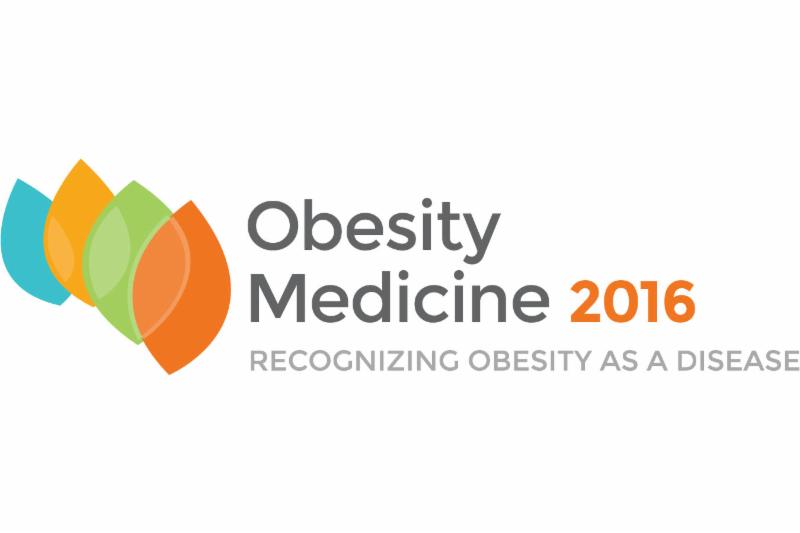Obesity Medicine Education Moving Online 
Obesity Medicine Academy, OMA's new online learning platform, is almost here! The Academy will be unveiled at Obesity Medicine 2016.
The Academy will allow you to easily find those must-see lectures you've discussed with your colleagues; browse lectures by topic, title, or speaker; view presentations; and download the recordings to your computer or mobile device. Additionally, you will be able to take the lecture quiz and claim your CME/CE!
Once the new, more convenient system is in place, OMA will no longer offer hard copy CDs or DVDs in our online store. In preparation, we are having a significant sale on the remaining educational materials in stock. These tools are excellent for ABOM exam prep, and these discounts are only available while supplies last. Don't miss your chance to obtain discounted CME/CE materials!
|
 Obesity Medicine Educational Collaborative Meets in Denver On March 18, leaders from OMA and The Obesity Society met in Denver to discuss plans for creating a blueprint for obesity medicine education in medical schools, residencies, and fellowships.
The steering committee of the Obesity Medicine Education Collaborative (OMEC) is comprised of Drs. Deborah Bade Horn, Robert Kushner, Nicholas Pennings, W. Scott Butsch, Caroline Apovian, and Ethan Lazarus. The goal of OMEC is to promote and disseminate comprehensive obesity medicine education across the continuum spanning undergraduate medical education, graduate medical education, and fellowship training.
This collaborative plans to deliver educational outcomes that include creation of core competencies, Entrustable Professional Activities (EPAs), learning objectives, and examples of curriculum content and design.
OMEC working groups will be created in the coming months to focus on each of the areas of training. Stay tuned for updates! |
Don't forget to update your AMA information!
Help us strengthen our voice in the American Medical Association (AMA) by designating OMA as your primary specialty society and adding your AMA member number to your OMA account. Please update both your AMA and OMA profiles by March 25 to ensure we meet AMA's requirements for representation in the House of Delegates and can continue to influence policy, introduce initiatives, and ensure that AMA keeps talking about obesity.
|
Obesity Treatment Foundation
|
 OTF needs your help! OTF needs your help!
The registry will create periodic reports for your clinic, which permit you to make comparisons between your data and data from clinics employing similar and dissimilar methods. The intent is to enable individual participants to have access to the database should they wish to conduct their own analyses. Research will be conducted from this registry, with the ultimate goal of improving patient outcomes and increasing the visibility and credibility of the practice of obesity medicine.
Please complete the survey by March 30.
|
 |
Protein "requirements" beyond the RDA: implications for optimizing health
Stuart M. Phillips, et al. Applied Physiology, Nutrition and Metabolism, 2016.
There have been claims that high protein consumption can lead to renal disease or adverse bone health. The benefits of consuming higher protein than the Recommended Dietary Allowance (RDA) is that protein helps to promote healthy aging, appetite regulation, and obesity management. Higher protein intake can help prevent age-related sarcopenia and loss of strength. This overview highlights recent evidence that intakes in the range of 1.2-1.6g/kg/day is a better target than the current RDA and that there is no evidence of higher protein diets being linked to renal disease or reduced bone health. View article
|
The Edmonton Obesity Staging System for Pediatrics: A proposed clinical staging system for pediatric obesity
Hadjiyannakis S, et al. Paediatr Child Health. 2016.
Clinical recommendations for assessing and managing pediatric obesity have traditionally relied on body mass index (BMI), BMI percentile and/or BMI z-score. However, these anthropometric measures do not always identify obesity-related health risks or comorbidities in children. A new clinical staging system has been developed to address this need: the Edmonton Obesity Staging System for Pediatrics, EOSS-P, adapted from the adult-oriented EOSS. The EOSS-P stratifies young patients according to severity of obesity-related comorbidities into four graded categories (0 to 3) within four main health domains: metabolic, mechanical, mental health, and social milieu (the four Ms). The EOSS-P uses common clinical assessments and has the potential to help evaluate and inform the management of pediatric obesity. View article
|
|
|
|
Executive Director
Sponsorships and Exhibits Manager
Operations Manager
Education Coordinator
Communication Manager
Executive Director of the Obesity Treatment Foundation
|
|
101 University Blvd.,
Suite 330
Denver, CO 80206
|
|
|
Metabolic effects of smoking cessation
Harris KK, et al. Nat Rev Endocrinol. 2016.
On average, adults who quit smoking gain about 4.5 kg within 6-12 months. This phenomenon has prevented many adults, particularly women, to fail to initiate smoking cessation or to relapse after initiating smoking cessation. This review article reports on the associations between smoking cessation and obesity and explores the mechanisms behind smoking-related weight loss and smoking cessation weight gain. Several theories have been proposed to explain increased food intake after smoking cessation, including nicotine's ability to suppress appetite; substitution reinforcement, which replaces the rewards of food with rewards of cigarettes; and changes in gut microbiota, among others. Individuals with obesity who quit smoking have the highest need for interventions to prevent weight gain. Approaches that account for overeating during the first 6 months of cessation should be considered to maximize the chances of successfully quitting smoking . View article
|
 |

Obesity Medicine 2016
There are only two weeks left until Obesity Medicine 2016! Reserve your spot now for top-rated education from leading experts in the field and invaluable networking opportunities with your peers. Register now to ensure you don't miss out. While you're there, don't miss all that San Francisco has to offer. Take a trip to Alcatraz for a taste of history, walk along the waterfront or the Golden Gate Bridge, or visit one of the city's many cultural districts. |
Review Course for the ABOM Exam
13.25 CME/CE | April 6-7
Helps prepare those planning to take the American Board of Obesity Medicine (ABOM) certification exam.
| Practice Management Essentials
6.5 CME/CE | April 6
Explains the best business practices for running an obesity medicine clinic, from setting up a practice to boosting patient retention.
|
|
Nutrition Course
6.75 CME/CE | April 7
Outlines the latest evidence-based findings about nutrition and helps you select appropriate nutrition plans for your patients.
| Spring Obesity Summit
17.25 CME/CE | April 8-10
Addresses topics related to current and emerging research, evidence-based treatment approaches, technologies, and practical methods used by obesity medicine clinicians.
|
|
|
*The Review Course for the ABOM Exam runs concurrently with Practice Management Essentials on Wednesday and the Nutrition Course on Thursday. Registration for the Review Course includes two days of class time, and switching between courses is not allowed.
|
|
|
|
The Obesity Medicine Association and the Obesity Treatment Foundation thank our 2016 Corporate Advisory Council members for their continuous support.
|
© 2016 Obesity Medicine Association. All rights reserved. Materials may not be reproduced, redistributed or translated without written permission. Advertising disclaimer: Under a policy approved by the OMA executive committee and exhibitor/advertiser review committee, commercial companies may apply to advertise in OMA publications. Approval does not imply endorsement or official recognition of particular products or services.
|
|
|
|